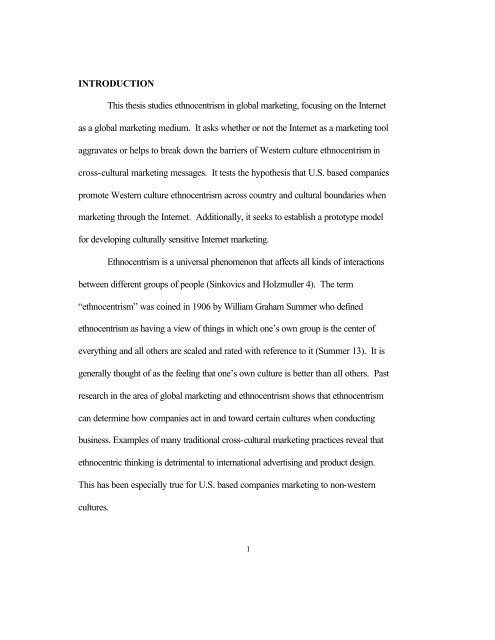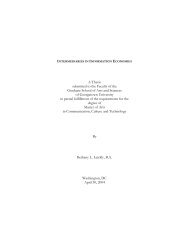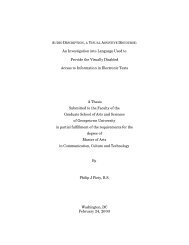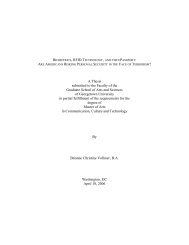A Comparative Case Study of Global Marketing and Ethnocentrism ...
A Comparative Case Study of Global Marketing and Ethnocentrism ...
A Comparative Case Study of Global Marketing and Ethnocentrism ...
You also want an ePaper? Increase the reach of your titles
YUMPU automatically turns print PDFs into web optimized ePapers that Google loves.
INTRODUCTION<br />
This thesis studies ethnocentrism in global marketing, focusing on the Internet<br />
as a global marketing medium. It asks whether or not the Internet as a marketing tool<br />
aggravates or helps to break down the barriers <strong>of</strong> Western culture ethnocentrism in<br />
cross-cultural marketing messages. It tests the hypothesis that U.S. based companies<br />
promote Western culture ethnocentrism across country <strong>and</strong> cultural boundaries when<br />
marketing through the Internet. Additionally, it seeks to establish a prototype model<br />
for developing culturally sensitive Internet marketing.<br />
<strong>Ethnocentrism</strong> is a universal phenomenon that affects all kinds <strong>of</strong> interactions<br />
between different groups <strong>of</strong> people (Sinkovics <strong>and</strong> Holzmuller 4). The term<br />
“ethnocentrism” was coined in 1906 by William Graham Summer who defined<br />
ethnocentrism as having a view <strong>of</strong> things in which one’s own group is the center <strong>of</strong><br />
everything <strong>and</strong> all others are scaled <strong>and</strong> rated with reference to it (Summer 13). It is<br />
generally thought <strong>of</strong> as the feeling that one’s own culture is better than all others. Past<br />
research in the area <strong>of</strong> global marketing <strong>and</strong> ethnocentrism shows that ethnocentrism<br />
can determine how companies act in <strong>and</strong> toward certain cultures when conducting<br />
business. Examples <strong>of</strong> many traditional cross-cultural marketing practices reveal that<br />
ethnocentric thinking is detrimental to international advertising <strong>and</strong> product design.<br />
This has been especially true for U.S. based companies marketing to non-western<br />
cultures.<br />
1






